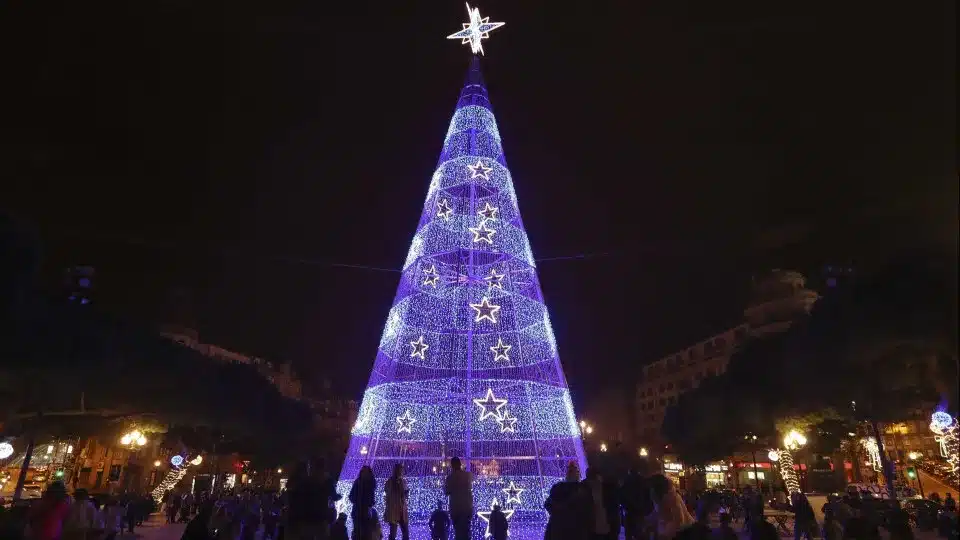The show “Amália, Dona de Si” includes several themes in which the main performer and the musicians that accompany him interact with Amália Rodrigues’ voice, something only possible with technology that, a decade ago, did not exist.
In a new musical scheduled for Sunday, current technology will allow the voice of Amália Rodrigues to ‘return’ to the stage of the Coliseu dos Recreios, where she performed in 1994, in the last recital of her career.
According to the producers, the show “Amália, Dona de Si” includes several themes in which the main performer and the musicians that accompany him interact with the voice of Amália Rodrigues, something only possible with technology that, a decade ago, did not exist.
“The construction of each of the themes here has something that only technology could give us. We have the voice of Amália, which is taken from the originals, which we put through algorithms in software and allows us to play live with the voice. With the original movements, but with the instruments of today”, said the pianist Pedro Ferreira to the Lusa agency.
And this also seduced us. It was [taking something] traditional, something that is in history and bringing something new. A new way to present Amália,” added the director general of the Coimbra Music Academy (AMC).
Also a director and teacher at AMC, Ricardo Costa, the ‘wizard’ of the technological component of “Amália, Dona de Si”, where he works as a sound technician, explained the process: “Technology has been developing and, now, we can separate within a song certain frequencies related to the instruments. In this case it is Amália’s voice”.
“Amália didn’t record on tracks [with her voice and instruments separated]. Now, with the growth of technology, it is possible to do this work. Now, this process is relatively simple and possible to accomplish, ten years ago it was impossible,” he emphasized.
And what is it like to sing with Amália, at the same time as her, without Amália being physically on stage? Singer Diogo Carvalho summed up the “emotion” of doing it, even if the rehearsals are different from a live performance of the musical that premiered in 2021, at the Centro de Artes e Espetáculos (CAE) in Figueira da Foz and toured São Paulo, Brazil, in November 2022.
“Normally in rehearsals nothing touches us, but on stage, I was singing the first song, “Fear”, and when her voice came in, a completely different atmosphere was created. But it’s not only me, it almost certainly happened to the public too”, summed up Diogo Carvalho,“It was that ‘wow, I’m doing this’ thing. I’m making a dream come true,” he pointed out.
Musically, “Amália, Dona de Si” is a look at the career of an artist “who deconstructed what was a bastion called fado, that which she herself helped to elevate,” Pedro Ferreira continued.
“It is a great challenge for us and a great mission of responsibility to pass on to current generations, this ability of Amália to assert herself as the foundation and structure of something that is such an important musical genre for a country. And how she was able to play with it, bring lightness to it, as were the most popular, most traditional songs, but also tread the great stages of the whole world with a magnitude that is recognized to her,” he argued.

What the new musical intended to do “was also, in some way, to bring this deconstruction” to the stage, replacing the viola with a piano, adding a double bass, but keeping the Portuguese guitar.
“We could never take the Portuguese guitar out, nor did she, although there was a phase in which a saxophone and other instruments appeared that took the place of the Portuguese guitar in the melodic comments, which is interesting. And then, also, the excellent polemics that Amália would provoke”, noted Pedro Ferreira.
In these polemics, he continued, Amália herself “drew her own conclusions and which way to go.
“And the Portuguese guitar embraces her in an incredible way,” Pedro Ferreira emphasized.
The guitar player Ricardo Silva reinforced the importance of the Portuguese guitar, either in the musical that he is part of, or in the career of the singer and Portuguese fado singer.
“Amália, who travelled all over the world and through different styles, never left her roots, fado and the Portuguese guitar. Often, even in films and old shows, there are huge orchestras on stage doing the musical support and, in front of her, there is always a Portuguese guitar. Or two, in this case in the Raul Nery string quartet, which accompanied her for many years,” he recalled.
“She never left that fadista side and that, at the same time, helped to mark our identity even more. She was the Cesária Évora of morna, the Edith Piaf in France and she never left that part of the guitar. To do a show about Amália would have to have the Portuguese guitar, it could never be any other way”, he added.
Besides the reinterpretation of iconic themes of Amália Rodrigues, “Amália, Dona de Si” presents an original theme, sung by Diogo Carvalho, which closes the show.
“When we looked at her life story, which is so well written here, musically we also had the mission of bringing something new. We launched an original, called ‘Amália, Pelos Caminhos do Teu Nome’, that wants to bring these sounds of today, this way of composing to the most current generations”, revealed Pedro Ferreira.








